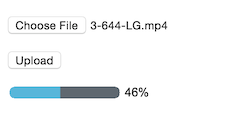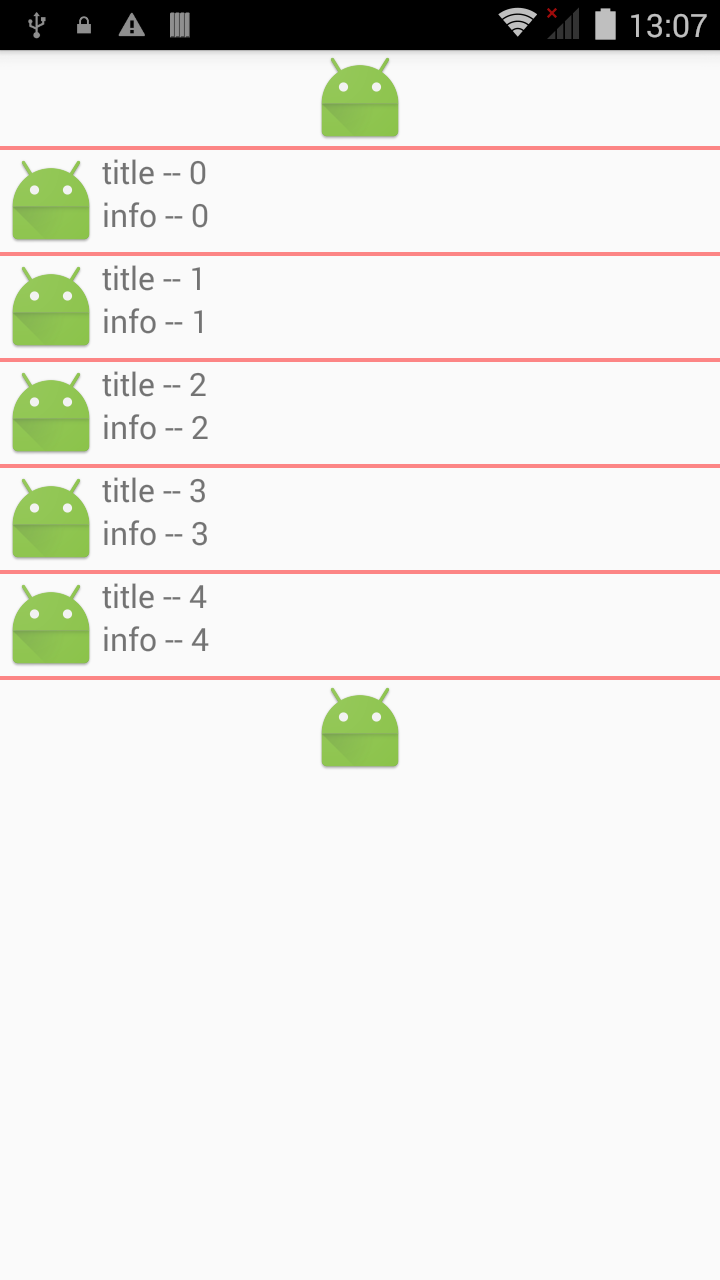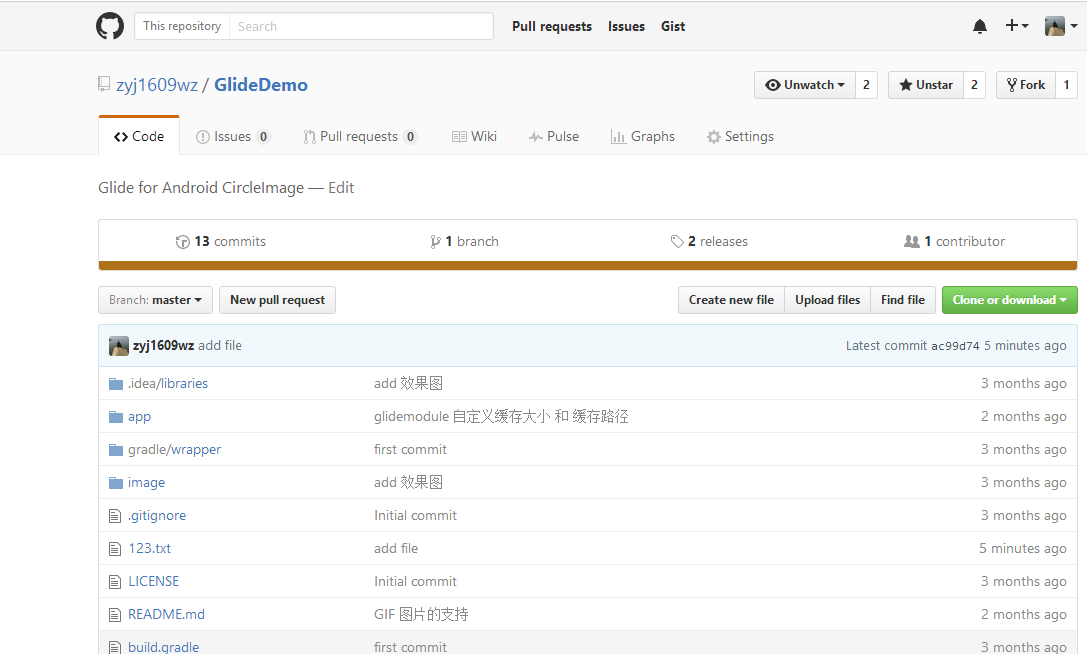編輯:關於android開發
幀動畫
> 一張張圖片不斷的切換,形成動畫效果
* 在drawable目錄下定義xml文件,子節點為animation-list,在這裡定義要顯示的圖片和每張圖片的顯示時長
<animation-list xmlns:android="http://schemas.android.com/apk/res/android" android:oneshot="false">
<item android:drawable="@drawable/g1" android:duration="200" />
<item android:drawable="@drawable/g2" android:duration="200" />
<item android:drawable="@drawable/g3" android:duration="200" />
</animation-list>
* 在屏幕上播放幀動畫
ImageView iv = (ImageView) findViewById(R.id.iv);
//把動畫文件設置為imageView的背景
iv.setBackgroundResource(R.drawable.animations);
AnimationDrawable ad = (AnimationDrawable) iv.getBackground();
//播放動畫
ad.start();
補間動畫
* 原形態變成新形態時為了過渡變形過程,生成的動畫就叫補間動畫
位移:
* 參數10指的是X的起點坐標,但不是指屏幕x坐標為10的位置,而是imageview的 真實X + 10
* 參數150指的是X的終點坐標,它的值是imageview的 真實X + 150
//創建為位移動畫對象,設置動畫的初始位置和結束位置
TranslateAnimation ta = new TranslateAnimation(10, 150, 20, 140);
* x坐標的起點位置,如果相對於自己,傳0.5f,那麼起點坐標就是 真實X + 0.5 * iv寬度
* x坐標的終點位置,如果傳入2,那麼終點坐標就是 真實X + 2 * iv的寬度
* y坐標的起點位置,如果傳入0.5f,那麼起點坐標就是 真實Y + 0.5 * iv高度
* y坐標的終點位置,如果傳入2,那麼終點坐標就是 真實Y + 2 * iv高度
TranslateAnimation ta = new TranslateAnimation(Animation.RELATIVE_TO_SELF, 0.5f, Animation.RELATIVE_TO_SELF, 2, Animation.RELATIVE_TO_SELF, 0.5f, Animation.RELATIVE_TO_SELF, 2);
* 動畫播放相關的設置
//設置動畫持續時間
ta.setDuration(2000);
//動畫重復播放的次數
ta.setRepeatCount(1);
//動畫重復播放的模式
ta.setRepeatMode(Animation.REVERSE);
//動畫播放完畢後,組件停留在動畫結束的位置上
ta.setFillAfter(true);
//播放動畫
iv.startAnimation(ta);
縮放:
* 參數0.1f表示動畫的起始寬度是真實寬度的0.1倍
* 參數4表示動畫的結束寬度是真實寬度的4倍
* 縮放的中心點在iv左上角
ScaleAnimation sa = new ScaleAnimation(0.1f, 4, 0.1f, 4);
* 參數0.1f和4意義與上面相同
* 改變縮放的中心點:傳入的兩個0.5f,類型都是相對於自己,這兩個參數改變了縮放的中心點
* 中心點x坐標 = 真實X + 0.5 * iv寬度
* 中心點Y坐標 = 真實Y + 0.5 * iv高度
ScaleAnimation sa = new ScaleAnimation(0.1f, 4, 0.1f, 4, Animation.RELATIVE_TO_SELF, 0.5f, Animation.RELATIVE_TO_SELF, 0.5f);
透明:
* 0為完全透明,1為完全不透明
AlphaAnimation aa = new AlphaAnimation(0, 0.5f);
旋轉:
* 20表示動畫開始時的iv的角度
* 360表示動畫結束時iv的角度
* 默認旋轉的圓心在iv左上角
RotateAnimation ra = new RotateAnimation(20, 360);
* 20,360的意義和上面一樣
* 指定圓心坐標,相對於自己,值傳入0.5,那麼圓心的x坐標:真實X + iv寬度 * 0.5
* 圓心的Y坐標:真實Y + iv高度 * 0.5
RotateAnimation ra = new RotateAnimation(20, 360, Animation.RELATIVE_TO_SELF, 0.5f, Animation.RELATIVE_TO_SELF, 0.5f);
#####所有動畫一起飛
//創建動畫集合
AnimationSet set = new AnimationSet(false);
//往集合中添加動畫
set.addAnimation(aa);
set.addAnimation(sa);
set.addAnimation(ra);
iv.startAnimation(set);
屬性動畫
* 補間動畫,只是一個動畫效果,組件其實還在原來的位置上,xy沒有改變
###位移:
* 第一個參數target指定要顯示動畫的組件
* 第二個參數propertyName指定要改變組件的哪個屬性
* 第三個參數values是可變參數,就是賦予屬性的新的值
* 傳入0,代表x起始坐標:當前x + 0
* 傳入100,代表x終點坐標:當前x + 100
//具有get、set方法的成員變量就稱為屬性
ObjectAnimator oa = ObjectAnimator.ofFloat(bt, "translationX", 0, 100) ;
###縮放:
* 第三個參數指定縮放的比例
* 0.1是從原本高度的十分之一開始
* 2是到原本高度的2倍結束
ObjectAnimator oa = ObjectAnimator.ofFloat(bt, "scaleY", 0.1f, 2);
###透明:
* 透明度,0是完全透明,1是完全不透明
ObjectAnimator oa = ObjectAnimator.ofFloat(bt, "alpha", 0.1f, 1);
###旋轉
* rotation指定是順時針旋轉
* 20是起始角度
* 270是結束角度
ObjectAnimator oa = ObjectAnimator.ofFloat(bt, "rotation", 20, 270);
* 屬性指定為rotationX是豎直翻轉
* 屬性指定為rotationY是水平翻轉
ObjectAnimator oa = ObjectAnimator.ofFloat(bt, "rotationY", 20, 180);
###可變參數
* 第三個參數可變參數可以傳入多個參數,可以實現往回位移(旋轉、縮放、透明)
ObjectAnimator oa = ObjectAnimator.ofFloat(bt, "translationX", 0, 70, 30, 100) ;
###所有動畫一起飛
//創建動畫師集合
AnimatorSet set = new AnimatorSet();
//設置要播放動畫的組件
set.setTarget(bt);
//所有動畫有先後順序的播放
//set.playSequentially(oa, oa2, oa3, oa4);
//所有動畫一起播放
set.playTogether(oa, oa2, oa3, oa4);
set.start();
 HTML5矢量實現文件上傳進度條
HTML5矢量實現文件上傳進度條
HTML5矢量實現文件上傳進度條在HTML中,在文件上傳的過程中,很多情況都是沒有任何的提示,這在體驗上很不好,用戶都不知道到時有沒有在上傳、上傳成功了沒有,所以今天給大
 Android UI:ListView,androiduilistview
Android UI:ListView,androiduilistview
Android UI:ListView,androiduilistviewSimpleAdapter是擴展性最好的適配器,可以定義各種你想要的布局,而且使用很方便。 l
 Android github 快速實現多人協作,androidgithub
Android github 快速實現多人協作,androidgithub
Android github 快速實現多人協作,androidgithub前言:最近要做github多人協作,也就是多人開發。搜索了一些資料,千篇一律,而且操作麻煩。今天
 Android自動化構建之Ant多渠道打包實踐分析(下)
Android自動化構建之Ant多渠道打包實踐分析(下)
Android自動化構建之Ant多渠道打包實踐分析(下) 前言 上一篇(Android自動化構建之Ant多渠道打包實踐分析(上))已經介紹了Android的apk是如何構